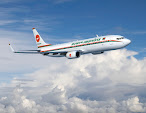The pharmaceutical industry is one of the most developed industrial sectors of Bangladesh. There are approximately 250 companies active in the market at the moment. This rapidly growing industry contributes almost 1% of the GDP and is currently the third largest tax paying sector in the country. USA-based research firm IMS had stated in 2009 that the retail pharmaceutical market value in Bangladesh is around BDT 55 billion. The annual average growth rate of pharmaceuticals has hit double digit since 2009.
The pharmaceutical sector of Bangladesh has achieved a great reputation worldwide for its quality products. This can be seen by the increasing number of export orders the companies are getting from foreign buyers. Back in the 1980s, only a couple of companies exported pharmaceutical products to only Myanmar, Sri Lanka and Nepal. Now this sector is exporting products in 52 different countries. These products include high tech medicines such as inhalers, suppositories, infusions and injectable. A massive opportunity opened up for Bangladesh after WTO/TRIPs ‘Patent Law’ was implied which has made it possible for Bangladeshi pharmaceutical companies to export patented drugs until January 2016.
Local companies achieved a great deal of success in the local market as well. Their quality products have become highly popular among the locals which eliminated the need to buy foreign products. Because of the local companies, people can buy medicines for a cheaper price. The price would have been much higher if the medicines had to be imported. A large number of local companies have won accreditation in the past from foreign regulatory authorities such as EMEA (Austria) and TGA (Australia). This proves that the local companies are using strict protocol in manufacturing and competing with global brands.
The future growth of this promising sector largely depends on the availability of API (Active Pharmaceutical Ingredient). Some of the companies recently took initiative to manufacture these ingredients but still the production it is not even close to the demand. To make this industry flourish, more API industries need to be set up. The government should offer more incentives to those who invest in the API industries. If this is ensured, a growth rate of 80% can be expected in the coming years.
The biggest name in the pharmaceutical sector of Bangladesh is Square Pharmaceuticals. It has a market share of 19.3%. Incepta Pharmaceutical and Beximco Pharmaceuticals respectively have 8.5% and 7.6% market share. The domination of local companies can be seen by the fact that even though a good number of multinational companies are active in the pharmaceuticals sector, none of them are in the top 10 list when it comes to market share.
As mentioned earlier, the pharmaceutical products are in a huge demand in the local market and local and international regulatory authorities are extremely pleased with the standard. If the companies can capitalize on these strong points along with the fact that health expenditure is rapidly increasing, a significant improvement can be noticed very quickly in the sector.
Related articles:
ঔষধ শিল্পে বাংলাদেশের উন্নতি আশাবাঞ্জক
Bangladesh has done well in the pharmaceutical sector
Beximco Pharma' generic pharmaceuticals formulation products
The pharmaceutical sector of Bangladesh has achieved a great reputation worldwide for its quality products. This can be seen by the increasing number of export orders the companies are getting from foreign buyers. Back in the 1980s, only a couple of companies exported pharmaceutical products to only Myanmar, Sri Lanka and Nepal. Now this sector is exporting products in 52 different countries. These products include high tech medicines such as inhalers, suppositories, infusions and injectable. A massive opportunity opened up for Bangladesh after WTO/TRIPs ‘Patent Law’ was implied which has made it possible for Bangladeshi pharmaceutical companies to export patented drugs until January 2016.
Local companies achieved a great deal of success in the local market as well. Their quality products have become highly popular among the locals which eliminated the need to buy foreign products. Because of the local companies, people can buy medicines for a cheaper price. The price would have been much higher if the medicines had to be imported. A large number of local companies have won accreditation in the past from foreign regulatory authorities such as EMEA (Austria) and TGA (Australia). This proves that the local companies are using strict protocol in manufacturing and competing with global brands.
The future growth of this promising sector largely depends on the availability of API (Active Pharmaceutical Ingredient). Some of the companies recently took initiative to manufacture these ingredients but still the production it is not even close to the demand. To make this industry flourish, more API industries need to be set up. The government should offer more incentives to those who invest in the API industries. If this is ensured, a growth rate of 80% can be expected in the coming years.
The biggest name in the pharmaceutical sector of Bangladesh is Square Pharmaceuticals. It has a market share of 19.3%. Incepta Pharmaceutical and Beximco Pharmaceuticals respectively have 8.5% and 7.6% market share. The domination of local companies can be seen by the fact that even though a good number of multinational companies are active in the pharmaceuticals sector, none of them are in the top 10 list when it comes to market share.
As mentioned earlier, the pharmaceutical products are in a huge demand in the local market and local and international regulatory authorities are extremely pleased with the standard. If the companies can capitalize on these strong points along with the fact that health expenditure is rapidly increasing, a significant improvement can be noticed very quickly in the sector.
Related articles:
ঔষধ শিল্পে বাংলাদেশের উন্নতি আশাবাঞ্জক
Bangladesh has done well in the pharmaceutical sector
Beximco Pharma' generic pharmaceuticals formulation products

Pretty good article & extremely forced to certified pharmaceutical company key points. Thanks for sharing this Post.
ReplyDelete